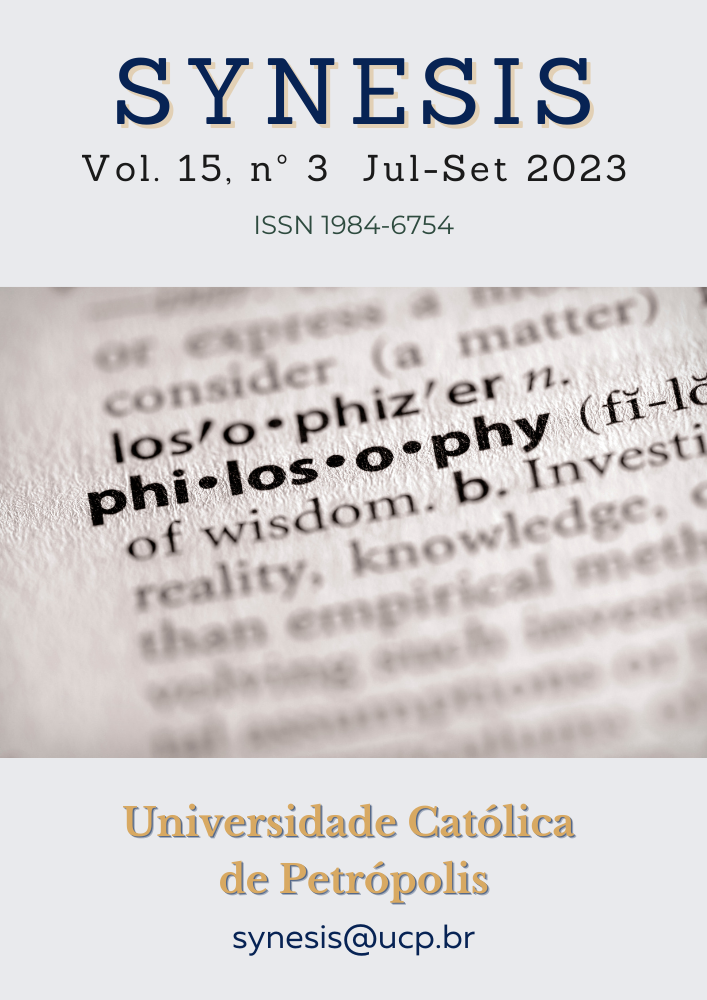Abstract
In current conditions, a crisis of the ideas of democracy, the political subject of the national state and economic structures is observed. On the other hand, there is a growing demand for rights and new forms of recognition, not to mention the emergence of mass movements seeking greater political participation and generating new collective subjectivities. The relevance of the research lies in the fact that radically challenging traditional philosophical categories, Kant, Fichte and Hegel provided a new and insightful understanding of the most significant problems of our time. They represent the concept of practical rationality and its numerous manifestations, which is necessary for a philosophical understanding of our modern world. The academic paper analyzes the philosophical and legal doctrines of German classical philosophy’s representatives. In particular, Kant’s conclusions about moral right or the categorical imperative formed the basis for establishing the rule of law. The imperative of mutual restriction of citizens’ freedom as a condition for ensuring the free existence of people was proposed by Kant and Fichte. Hegel’s ideas about the distinction between essence and phenomenon in law became fundamental to justify the principle of the rule of law as a phenomenon that distinguishes right from the positive right. The primary purpose of the research is to address the philosophical and legal views and theories (ideas and principles) of German classical philosophers in order to identify the basic (fundamental) laws of developing their content. The analysis of philosophical and legal doctrines has shown that the authors’ views on legal provisions are represented as an expression of rational selection, on the basis of which social interactions were rationally demanded and built by dividing and limiting models of social behavior. What is more important, the analysis showed that the only effective mechanism and creation of a culture of all mankind capable of guaranteeing the safe existence and development of a person is the law and its understanding, based on the imperative of preserving human nature and implemented in the context of state regulation of social relations.
References
Albala, A. (2017). Bicameralism and Coalition Cabinets in Presidential Polities: A configurational analysis of the coalitionformation and duration processes. The British Journal of Politics and International Relations, 19 (4), p. 735–754. https://doi.org/10.1177/1369148117727440.
Albala, A. (2019). Corrigendum: Bicameralism and Coalition Cabinets in Presidential Polities: A configurational analysisof the coalition formation and duration processes. The British Journal of Politics and International Relations, 21 (2), p. 459–460. https://doi.org/10.1177/1369148119846483.
Albert, R., Baraggia, A., & Fasone, C. (eds.). (2019). Constitutional Reform of National Legislatures. Bicameralism under Pressure. 320 p. https://doi.org/10.4337/9781788978644.
Fasone, C. (2019). Concluding chapter – Unicameralism and masked bicameralism. Constitutional Reform of National Legislatures. P. 183–192. https://doi.org/10.4337/9781788978644.00018.
Grande, B., Grande, E., & Hahn, U. (eds.). (2021). Zivilgesellschaft in der Bundesrepublik Deutschland. Aufbrüche, Umbrüche, Ausblicke. https://doi.org/10.1515/9783839456545.
Meg, R. (2019). Foreword: Bicameralism in an age of populism. Constitutional Reform of National Legislatures. https://doi.org/10.4337/9781788978644.00005.
Merkel, W., & Zürn, M. (2019). Kosmopolitismus, Kommunitarismus und die Demokratie. In Internationale Gerechtigkeit und institutionelle Verantwortung, edited by J. Nida-Rümelin, D. Daniels, and N. Wloka. Berlin: De Gruyter. https://doi.org/10.1515/9783110615876-007.
Mulvie, A. (2021). Philosophy and theories of learning and their application in book: Learning and Development for a Multigenerational Workforce, https://doi.org/10.4324/9780429293481-7.
Oxamytny, V. (2021). General theory of State and law: textbook. 3rd ed., reprint. and add-on: UNITYDANA PUBL, 286.
Philoso phical and methodological problems of law, 1. P. 14–20. https://doi.org/10.33270/02201901.14.
Strachwitz, R. G., Priller, E., & Triebe, B. (2019). Handbuch Zivilgesellschaft. De Gruyter. https://doi.org/10.1515/9783110553475.
Tirkkonen, S. (2019). What Is Experience? Foucauldian Perspectives. Open Philosophy. Vol. 2. P. 447–461. https://doi.org/10.1515/opphil-2019-0032.
Toepler, S., Zimmer, A., Fröhlich, C., & Obuch, K. (2020). The Changing Space for NGOs: Civil Society in Authoritarian and Hybrid Regimes. Voluntas 31 (4), p. 649–62. https://doi.org/10.1007/s11266-020-00240-7.
Vercesi, M. (2019). Democratic Stress and Political Institutions: Drives of Reforms of Bicameralism in Times of Crisis. Representation, p. 1–18. https://doi.org/10.1080/00344893.2019.1635195.
Zöller, G. (2017). Homo homini civis. The Modernity of Classical German Political Philosophy. German Idealism Today, edited by Markus Gabriel and Anders Moe Rasmussen, Berlin, Boston: De Gruyter, p. 73–92. https://doi.org/10.1515/9783110498615-003.
Bratasiuk, M. (2020). Philosophy of human rights protection from the standpoint of modern legal thinking. Fìlosofs׳kì ta metodologìčnì problemi prava, 1 (19), p. 14–19. https://doi.org/10.33270/02201901.14.
Holovko, O. M. (2019). The Philosophy of Law of Immanuel Kant on the Regularities of the Historical and Legal Process, 28, p. 26–33. https://doi.org/10.26565/2075-1834-2019-28-03.
Zherebkin, S. (2000). German Philosophy from Kant to Nietzsche, 6, p. 31–44.
Kant, I. (1963-1966). The Idea of Universal History in a World-Civilized Plan, 6, p. 11–12.
Kant, I. (1966). Critique of the Capacity of Judgment, 5, 462 p.
Kant, I. (1965). The Metaphysics of Manners, 4, 138 p.
Pylypyshyn, P. B. (2021). Substantiation of the Ideas of Individualism in German Classical Philosophy of Law. Actual Problems of State and Law: collection of research papers, 89, p. 75–81. https://doi.org/10.32837/apdp.v0i89.3194.
Fichte, I. G. (1993). The Main Features of the Modern Era. SPb: Nauka, 640 p.

This work is licensed under a Creative Commons Attribution-NonCommercial-NoDerivatives 4.0 International License.
Copyright (c) 2023 Synesis (ISSN 1984-6754)

